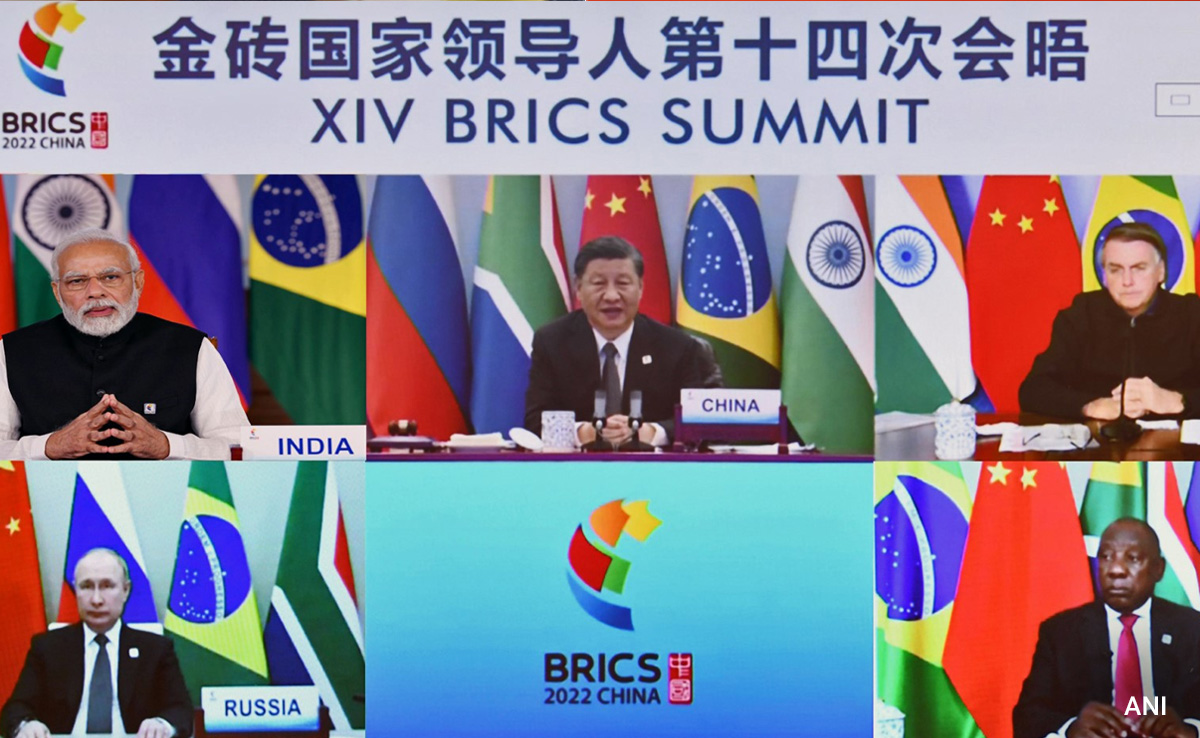According to three Brazilian government officials who spoke to ICCBizNews, Brazil has been resistant to the growing momentum within the BRICS group, comprising major emerging economies, to admit more member countries. However, the forthcoming summit is likely to bring forth discussions about the criteria for admission, making the debate inevitable.
The BRICS group, consisting of Russia, India, China, and South Africa, has been seen as a potential counterbalance to traditional diplomatic forums like the G7. As BRICS operates on a consensus-based decision-making model, Brazil's agreement will be crucial for any expansion efforts.
China, seeking to enhance its political influence, particularly amid trade tensions with the United States, has consistently advocated for BRICS enlargement. Additionally, Russia, facing diplomatic isolation due to its involvement in the Ukraine conflict, views this opportunity as a means to forge new alliances.
South Africa, the current chair of the group, organized a "Friends of BRICS" meeting in June, which attracted several countries eager to join. Surprisingly, India, previously cautious about rapid expansion, seems to have warmed up to the idea in principle, according to sources.
On the other hand, Brasilia is apprehensive that the group's stature might diminish if more nations are allowed to join. Approximately 30 countries have expressed interest, with 22 of them formally applying, including Algeria, which applied last month.
A Brazilian official, speaking anonymously, expressed concerns about how expansion could potentially alter the essence of the bloc. "Brazil's position has been focused on maintaining the group's cohesion and preserving our standing within this association of significant nations," the official stated.
At a recent foreign ministers meeting in Cape Town, two out of the three Brazilian officials were present to discuss the matter ahead of the upcoming BRICS summit in Johannesburg, scheduled for August 22-24.
During the meeting, diplomats were instructed to devise a new process for admitting new members that would be agreeable to all members of the group. It is anticipated that without reaching a consensus on this process, the matter of expanding the group will not be resolved at the summit this month.
The BRICS group, representing over 40% of the global population and approximately 26% of the world economy, offers an alternative platform for countries that wish to engage outside traditional diplomatic channels, which are often seen as dominated by Western powers. Given its influence and economic strength, more nations are keen on becoming part of the BRICS group.
China's foreign ministry openly expressed its desire for a prompt expansion, affirming in a statement that Beijing "strongly supports the advancement of membership expansion and warmly welcomes additional like-minded partners to join the 'BRICS family' in the near future."
Russia also emphasized the significance of expansion, confirming that it would be a prominent item on the agenda during the upcoming BRICS summit. However, President Vladimir Putin will not attend the summit due to an international arrest warrant.
Kremlin spokesman Dmitry Peskov emphasized the importance of this topic, stating, "This is a very crucial matter because we have noticed an increasing number of countries making statements about their intentions to join BRICS," during a news briefing.
India's foreign ministry declined to comment on the matter. However, a government official informed ICCBizNews that India holds reservations regarding the expansion. If expansion is to take place, it must occur through mutual agreement and consensus.
South Africa, being the first beneficiary of BRICS expansion in 2010, is now in favor of including new members. Nevertheless, South African President Cyril Ramaphosa has emphasized the need for "closer scrutiny and understanding" when considering the expansion formula.
In Brasilia, sources informed ICCBizNews that Brazil's government will advocate for a gradual expansion that maintains regional balance and preserves prominent roles for the five permanent members.
According to one Brazilian official, new members might have the option of being admitted as partner countries participating in summits without becoming full members, similar to other international organizations.
The official admitted that Brazil may eventually have to yield on this matter due to realism, but they expressed concern that such a move may not be advantageous for their country.
In the past, Brazil has been comfortable allowing India to take the lead in opposing expansion. However, India seems to have softened its resistance in recent times, as noted by BRICS watcher Oliver Stuenkel, a professor at the Getulio Vargas Foundation in São Paulo.
Stuenkel suggested that Indonesia is a strong candidate for BRICS membership given its regional power, growing global economic role, and absence of significant global controversies.
On the other hand, including countries like Iran, Venezuela, or Saudi Arabia could alter the dynamics of the group and potentially make it more challenging for countries such as Brazil to maintain their influence within BRICS.


)



.jpg)